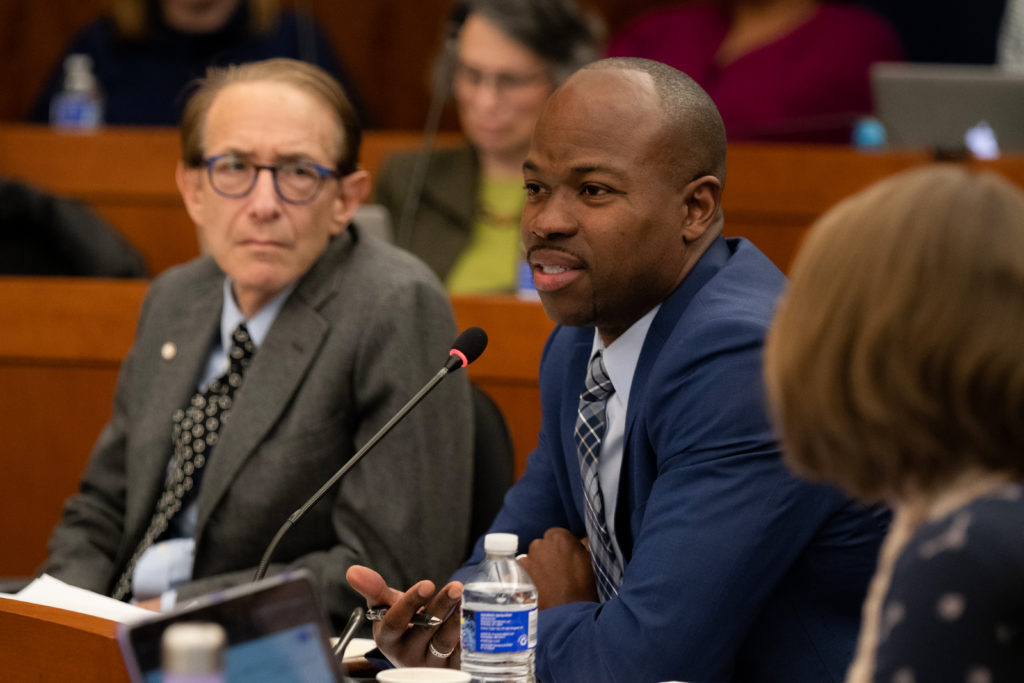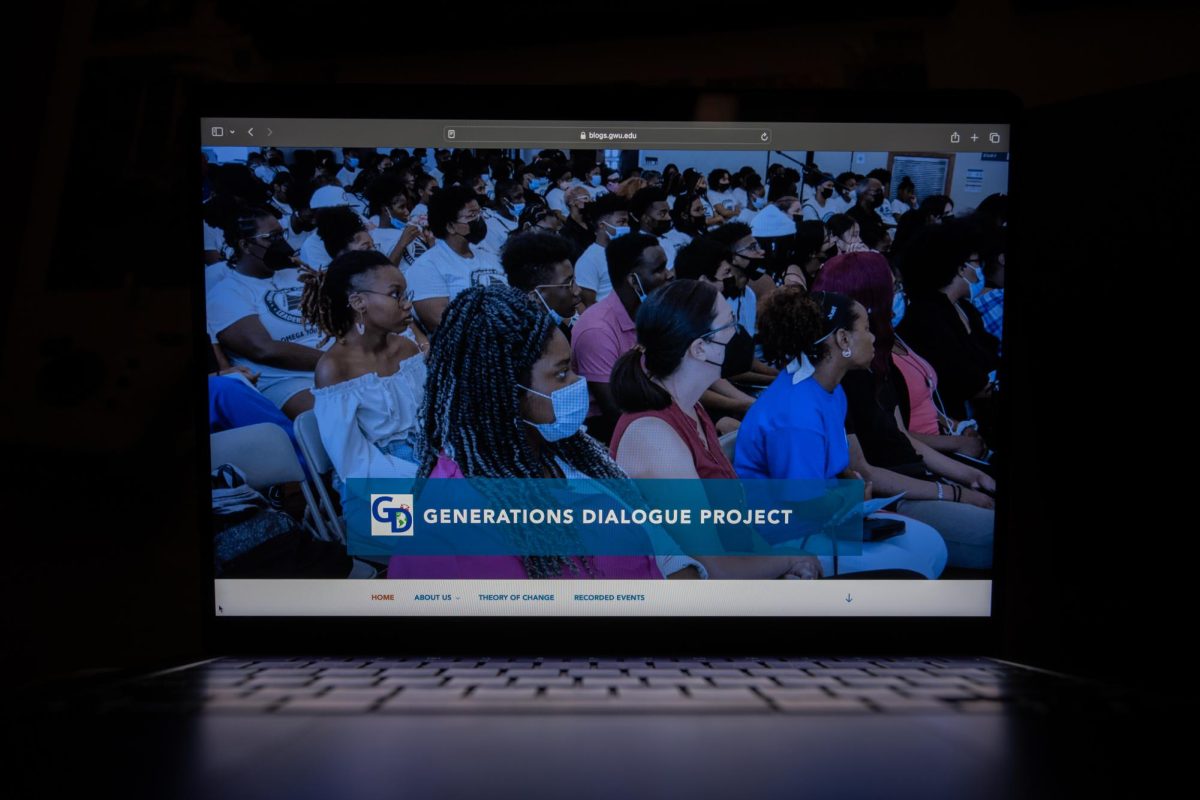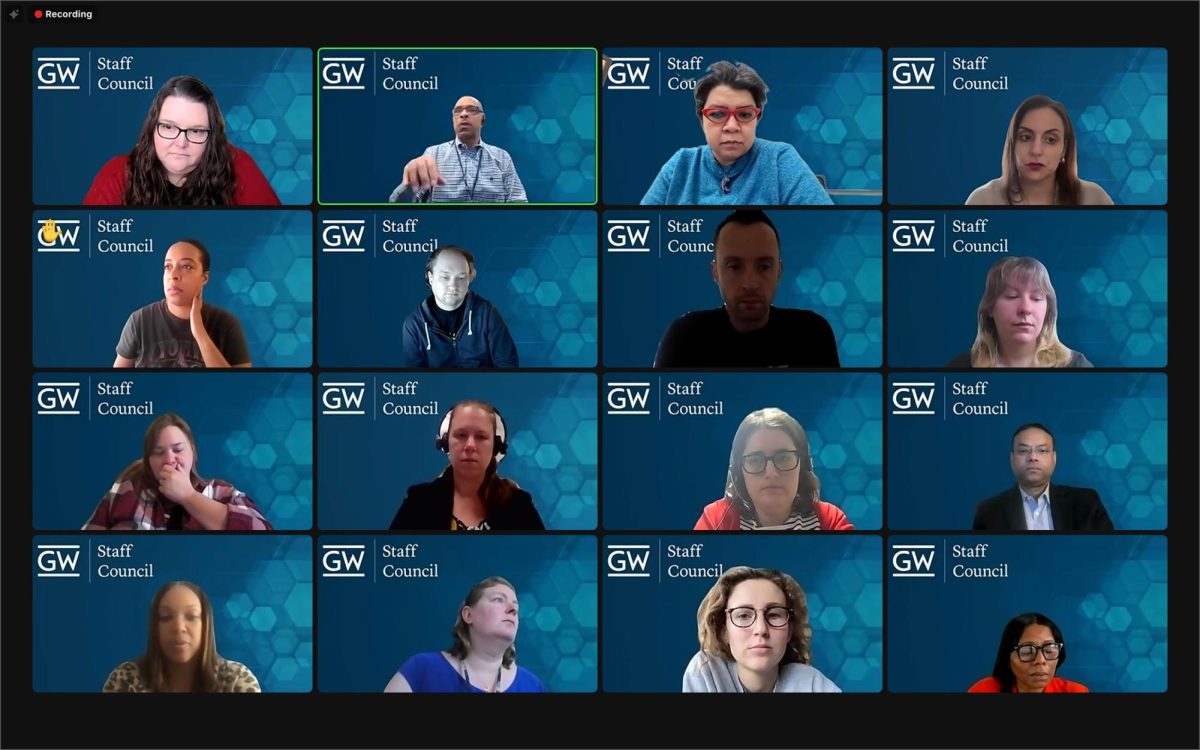Officials said at a Faculty Senate meeting Friday that the number of applications to GW remained roughly stable this year, bucking a nationwide downturn.
Provost Brian Blake said 27,011 students submitted applications to GW this year based on the latest information available, compared to 27,066 applications last year, adding that the figure outpaces the 5 to 10 percent drop in applications to many of GW’s peer schools. The senate also passed resolutions emphasizing the body’s commitment to shared governance and updating the terms under which someone can receive an academic distinction.
Blake said the University’s applicant pool this year is more diverse in terms of underrepresented minorities than last year’s when administrators enrolled GW’s most diverse class in at least nine years.
“I feel very confident that we’ll get a really great class moving forward,” Blake said at the meeting.
Blake said growth in domestic applications almost entirely offset a decline in international applications likely caused by “environmental factors,” particularly from China. Enrollment from Chinese students to American universities has declined in recent years, which experts said two years ago may be the result of the effect President Donald Trump has had on the U.S.’s reputation worldwide.
Officials are seeking to increase the share of the undergraduate population consisting of international students as part of GW’s current strategic plan.
Blake added at the meeting that he intends to announce the next law school dean “very likely” next week. Christopher Bracey has served as interim dean since the departure of Blake Morant at the end of the last academic year.
Blake also floated the idea of raising the minimum grade point average requirements for students to maintain merit-based scholarships, adding that he intends to reach out to the deans of GW’s 10 schools to garner feedback on any potential change. Undergraduate students must maintain a GPA of at least 2.0 to receive merit aid awards, according to the financial aid website.
He said any changes administrators choose to make will not affect students currently attending the University, who will be grandfathered into the policy. He said he plans to meet with deans in the coming weeks to consider changing the policy for next year’s incoming class.
“I think academic merit support, it really needs to be at a certain level,” Blake said in an interview. “When I give students merit support, that’s from a general fund that could be doing other things. I would prioritize those funds and those standards to other things, if [student GPAs fall] short of a certain level.”
Blake said he is also changing how officials disburse revenues to GW’s 10 individual schools. Administrators will now tax schools on the money they spend on graduate stipends and fellowships instead of levying a tariff on the gross amount they receive from central administration for those programs, which Blake said will provide deans with more ownership over how their schools spend their money.
“You should have control over how those decisions are made,” Blake said. “What you’re seeing this year is that they’re doing basically the same thing we were doing before, but now they’re actually able to control it even more. So I think it’s a great thing.”
The senate unanimously approved a resolution tabled from the body’s January meeting that states that officials violated principles of shared governance when they adopted and implemented University President Thomas LeBlanc’s 20/30 Plan, which calls for enrollment cuts and an increase in the fraction of STEM students on campus.
A special committee composed of faculty senators reviewed the resolution throughout the past month to “clean up” the language and summarize and synthesize 18 original clauses down to five.
Holly Dugan, a faculty senator and an associate professor of English, presented a new resolution during the meeting to reaffirm the University’s commitment to diversity and inclusion and establish a fifth pillar in the strategic planning process devoted to diversity. The resolution was referred to the executive committee for consideration.
The senate also unanimously approved a resolution updating the language of the policy guidelines for conferring honors, awards and distinctions. The bill adds “service to the community” and “professional work including service to the local or global community” as potential reasons faculty members may receive an academic distinction.
“It’s just making it easier for them to work as a community to select people to get honors at the University,” Sylvia Marotta-Walters, the chair of the senate’s executive committee, said.










